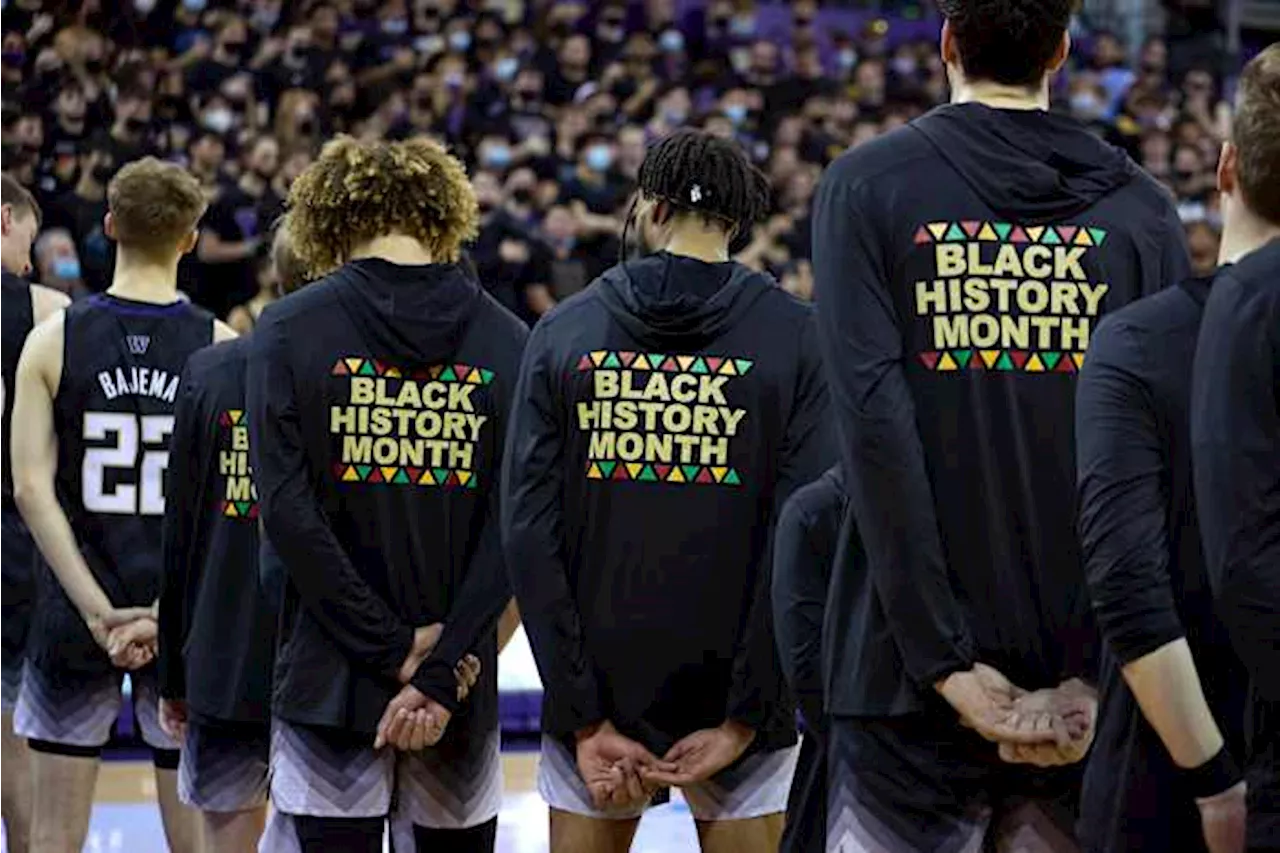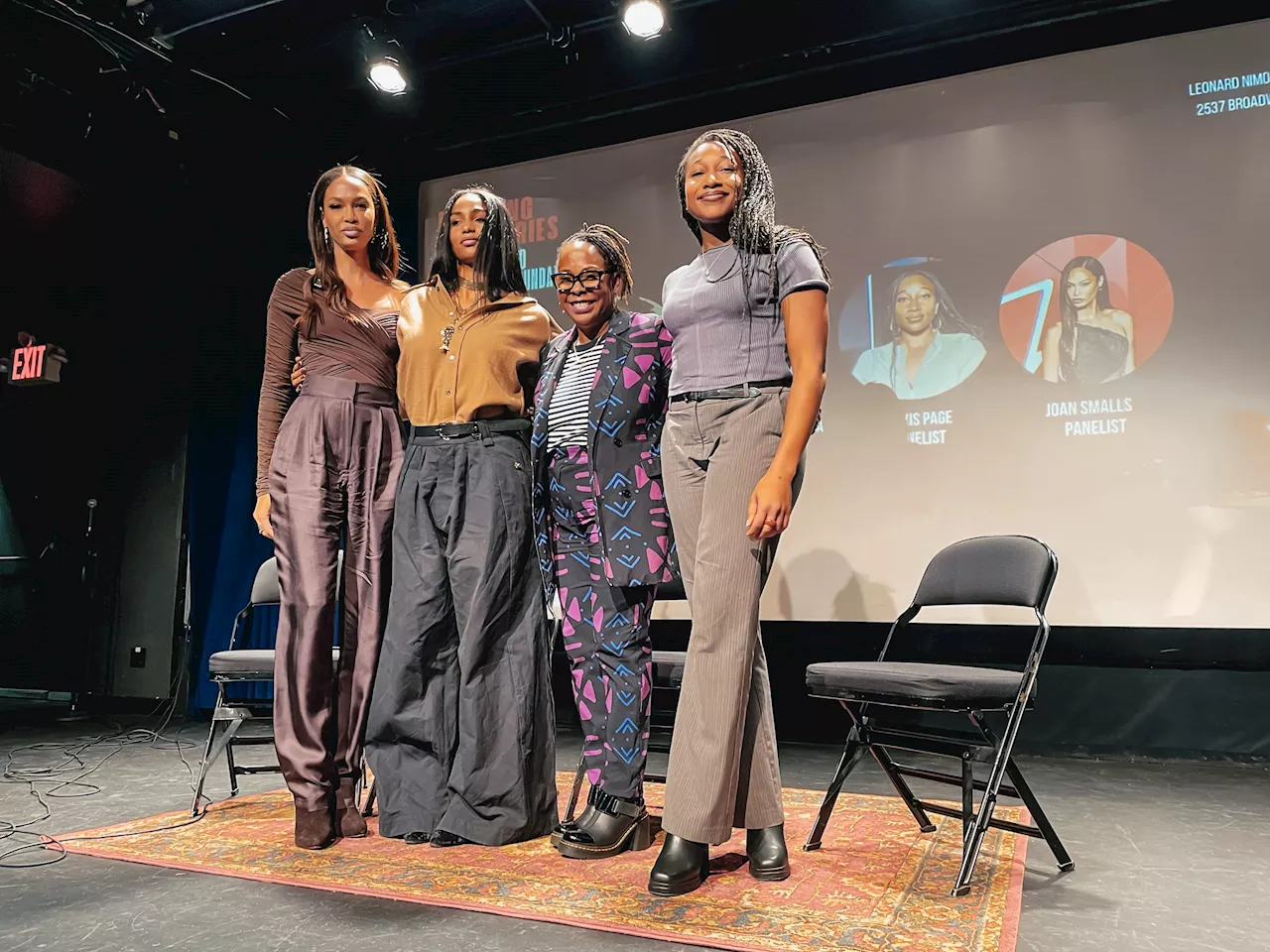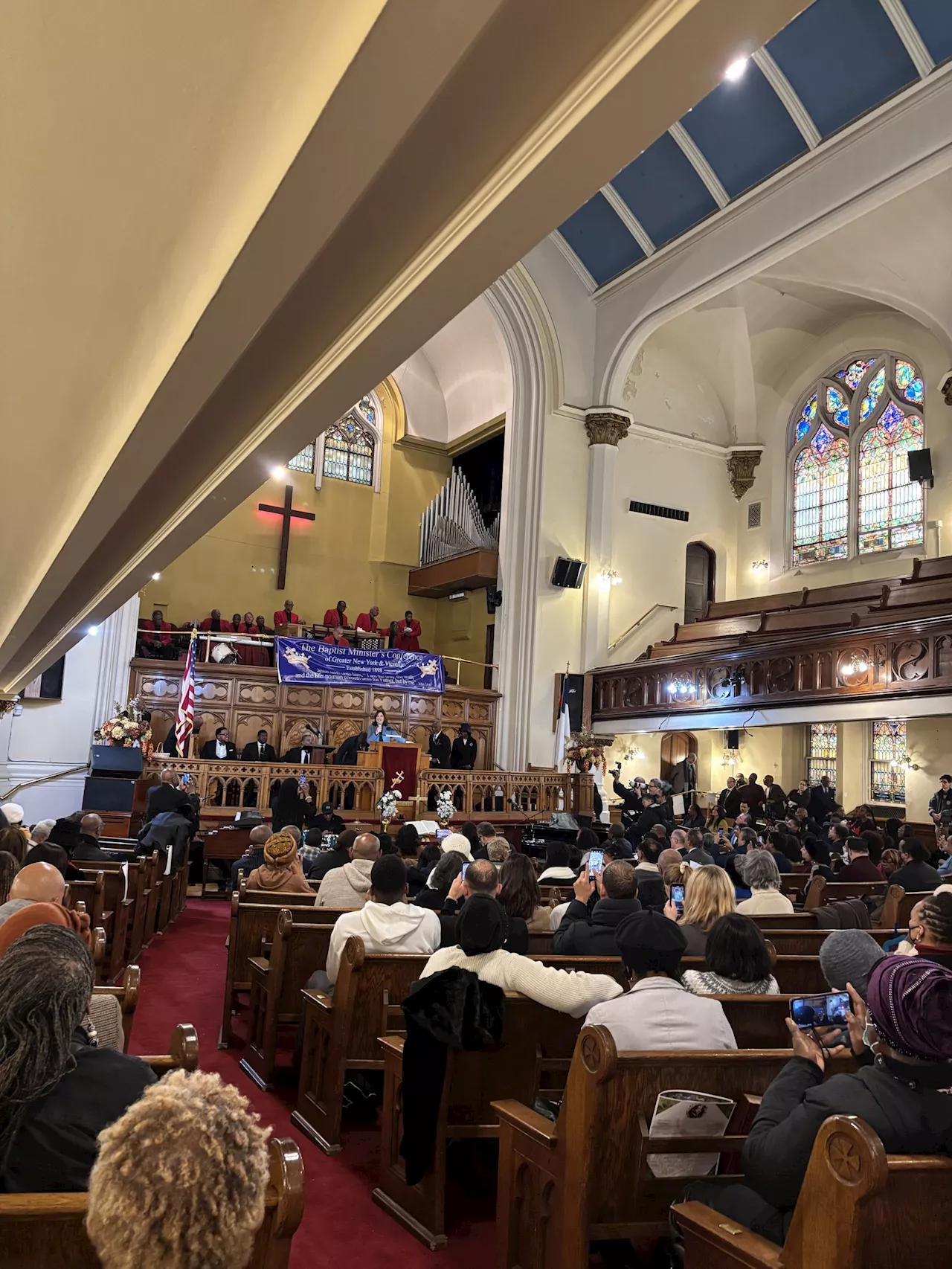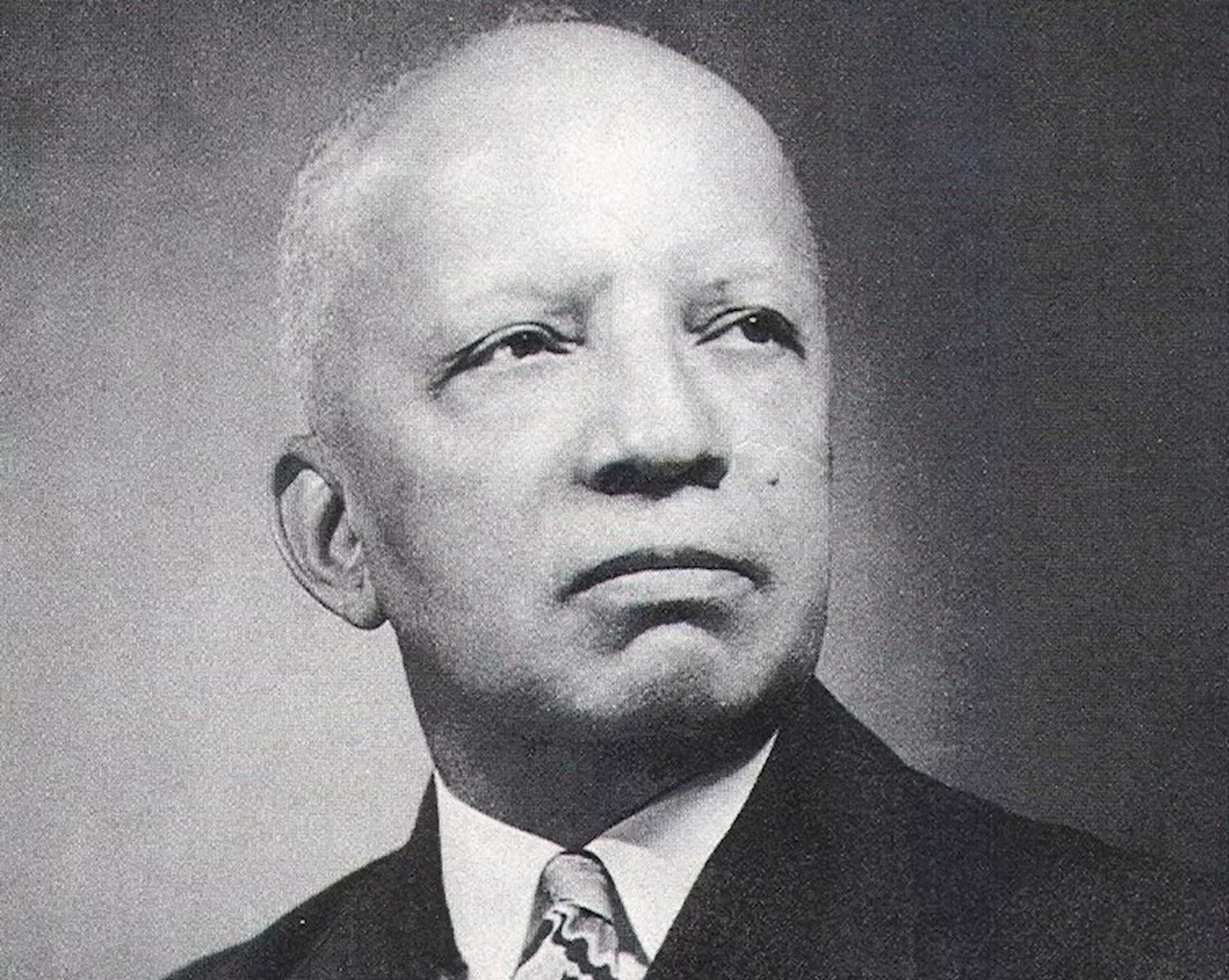A Black publisher receives a distinguished award, marking a historic moment for Black representation in the industry. The piece also delves into the legacy of Carter G. Woodson and the origins of Black History Month.
Publisher and my father, Wilbert “Bill” Tatum, stand before me. We've been reporting the news of the day from a Black perspective since 1909 – the first time in the 125 years of this award it has been given to a Black woman publisher. We are proud to provide no paywall journalism for the Black community we serve, the largest Black and Brown community in the country. February is Black History Month.
The observance began as Negro History Week and was started in 1926 by a gifted scholar and educator named Carter Godwin Woodson as a way to focus on the often-untold history and achievements of people of African descent. Up until the dawn of the 20th century, it was the untrue yet widely held belief among both whites and Blacks that African-Americans had no history of any significance of importance beyond slavery, even though there was concrete evidence that people of African descent had made significant contributions to world history on every level – socially, politically and economically. But these contributions would remain largely unknown, unsung and unnoticed until the diligent work of Woodson. This scholar and champion of African history had humble beginnings. Woodson was born in New Canton, Va., on Dec. 19, 1875. His parents, James and Eliza Riddle Woodson, were former slaves. His family was large and poor, making it impossible for him to attend school. Young Carter’s days were spent working on the family farm and, later, in the Kentucky coal mines, but nothing would stop him from learning. By age 17, he had taught himself the fundamentals of basic school subjects. By age 20, he began his formal education. But the late start didn’t stop Woodson from excelling. The brilliant student graduated from high school in less than two years. Soon after, Woodson began teaching high school and writing articles. He attended colleges in West Virginia, Kentucky, Pennsylvania and Illinois, earning a Bachelor of Arts from the University of Chicago in 1907 and a master’s degree in 1908. He earned his Ph.D. from Harvard in 1912, the second Black after W.E.B. DuBois to do so. He traveled to Europe and Asia and attended the Sorbonne in France. Woodson began teaching in the Washington, D.C., public school system and at Howard University. He realized that African-Americans had a rich, untold history that they should be proud of and that all Americans should understand. He believed that education and knowledge of one’s history was the key to success. With that, he dedicated his career to teaching other scholars about the importance of Black history. “History,” he said, “was not the mere gathering of facts. The object of historical study is to arrive at a reasonable interpretation of the facts. It must include some description of the social conditions of the period being studied. African-Americans had suffered because their true history was not being told correctly.” Woodson worked with the Washington, D.C., branch of the NAACP, but was not satisfied with the way things were going. In 1915, he wrote a letter to Chairman Archibald Grimke in which he made two proposals. His first suggestion was that the branch should have an office where people could come and report concerns and have those issues dealt with. His second proposal was that a canvasser be assigned to solicit members and subscribers for the Crisis, which was the NAACP’s magazine, edited by DuBois. DuBois added that the association should not support businesses that did not treat Blacks equally. The NAACP was not impressed with Woodson’s suggestions. His tenuous relationship with Grimke forced the end of his relationship with the organization. That same year, Woodson, along with Alexander L. Jackson and three other colleagues, founded the Association for the Study of Negro Life and History, which is now called the Association for the Study of African-American Life and History (ASALH). ASALH created the periodical the Journal of Negro History, which Woodson edited. The publication remained an important historical reference on the subject for more than 30 years. The Journal of Negro History in 1916 and the Negro History Bulletin in 1937 became important publications for Black scholars. In 1926, Woodson made his most enduring contribution. He started Negro History Week, which took place during the second week of February. Why February? No, not because it’s the shortest month of the year. Woodson chose it because it’s the birth month of abolitionist Frederick Douglass, President Abraham Lincoln and writer Langston Hughes. The NAACP was also founded in February
BLACK HISTORY MONTH CARTER G WOODSON AFRICAN AMERICAN HISTORY PUBLISHING JOURNALISM NAACP
United States Latest News, United States Headlines
Similar News:You can also read news stories similar to this one that we have collected from other news sources.
 Black History Month explained: Its origins, celebrations and mythsBlack History Month, a celebration of Black history, culture and education, kicks off on Feb. 1.
Black History Month explained: Its origins, celebrations and mythsBlack History Month, a celebration of Black history, culture and education, kicks off on Feb. 1.
Read more »
 Pentagon agency pauses celebrations for MLK Jr. Day, Black History Month, Pride Month, and moreThe Defense Department’s intelligence agency has paused observances of Martin Luther King Jr. Day, Pride Month, Holocaust Days of Remembrance and other cultural or historical annual events in response to President Donald Trump’s ban on diversity, equity and inclusion programs in the federal workplace.
Pentagon agency pauses celebrations for MLK Jr. Day, Black History Month, Pride Month, and moreThe Defense Department’s intelligence agency has paused observances of Martin Luther King Jr. Day, Pride Month, Holocaust Days of Remembrance and other cultural or historical annual events in response to President Donald Trump’s ban on diversity, equity and inclusion programs in the federal workplace.
Read more »
 Trump Recognizes Black History Month Amidst Defense Department's 'Identity Month' BanPresident Trump issued a proclamation recognizing February as Black History Month, while the Defense Department declared an end to official recognition of 'identity months,' including Black History Month. This move comes amidst Trump's broader efforts to dismantle diversity, equity, and inclusion (DEI) initiatives within the federal government.
Trump Recognizes Black History Month Amidst Defense Department's 'Identity Month' BanPresident Trump issued a proclamation recognizing February as Black History Month, while the Defense Department declared an end to official recognition of 'identity months,' including Black History Month. This move comes amidst Trump's broader efforts to dismantle diversity, equity, and inclusion (DEI) initiatives within the federal government.
Read more »
 Apple Celebrates Black History Month with New Black Unity CollectionApple has launched a new Black Unity Collection to honor Black culture and community during Black History Month. The collection features a special-edition Apple Watch band, a matching watch face, and iPhone and iPad wallpapers, all inspired by the 'rhythm of humanity'. In addition to the new products, Apple is supporting several global organizations focused on rhythm, creativity, and community.
Apple Celebrates Black History Month with New Black Unity CollectionApple has launched a new Black Unity Collection to honor Black culture and community during Black History Month. The collection features a special-edition Apple Watch band, a matching watch face, and iPhone and iPad wallpapers, all inspired by the 'rhythm of humanity'. In addition to the new products, Apple is supporting several global organizations focused on rhythm, creativity, and community.
Read more »
 Black Woman Publisher Makes History at African Diaspora Film FestivalPublisher and my father, Wilbert “Bill” Tatum, before me. We’ve been reporting the news of the day from a Black perspective since 1909 –, the first time in the 125 years of this award it has been given to a Black woman publisher – We are proud to provide no paywall journalism for the Black community we serve, the largest Black and Brown community in the country. After a screening of the documentary “Breaking Boundaries,” shown as part of the 32nd Annual African Diaspora Film Festival, panelists discussed some of the issues covered in the film. Nastasya Generalova, who was raised by her Russian mother in California, spent her youth and teen years competing in rhythmic gymnastics, rising to one of the top spots in the U.S. Despite her successes, though, Generalova, whose absent father is African American, endured comments about her body and performance style.
Black Woman Publisher Makes History at African Diaspora Film FestivalPublisher and my father, Wilbert “Bill” Tatum, before me. We’ve been reporting the news of the day from a Black perspective since 1909 –, the first time in the 125 years of this award it has been given to a Black woman publisher – We are proud to provide no paywall journalism for the Black community we serve, the largest Black and Brown community in the country. After a screening of the documentary “Breaking Boundaries,” shown as part of the 32nd Annual African Diaspora Film Festival, panelists discussed some of the issues covered in the film. Nastasya Generalova, who was raised by her Russian mother in California, spent her youth and teen years competing in rhythmic gymnastics, rising to one of the top spots in the U.S. Despite her successes, though, Generalova, whose absent father is African American, endured comments about her body and performance style.
Read more »
 Black Publisher Makes History at Dr. Martin Luther King Jr. CelebrationA Black woman publisher made history at the Baptist Ministers Conference of Greater New York's 57th annual Dr. Martin Luther King Jr. Celebration. The event, held at the Convent Avenue Baptist Church in Harlem, honored King's legacy and featured prominent figures like New York Governor Kathy Hochul and Congressmember Adriano Espaillat. The publisher, alongside her father, Wilbert 'Bill' Tatum, highlighted their commitment to providing no paywall journalism for the Black community.
Black Publisher Makes History at Dr. Martin Luther King Jr. CelebrationA Black woman publisher made history at the Baptist Ministers Conference of Greater New York's 57th annual Dr. Martin Luther King Jr. Celebration. The event, held at the Convent Avenue Baptist Church in Harlem, honored King's legacy and featured prominent figures like New York Governor Kathy Hochul and Congressmember Adriano Espaillat. The publisher, alongside her father, Wilbert 'Bill' Tatum, highlighted their commitment to providing no paywall journalism for the Black community.
Read more »
